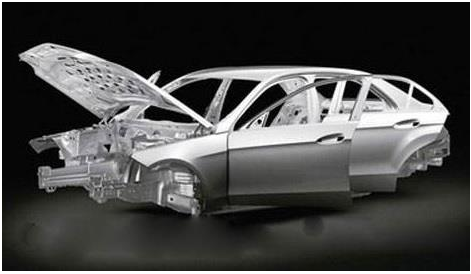Introduction:
In the world of manufacturing and metal production, efficiency and precision are paramount. One crucial element that contributes to achieving these goals is the aluminum casting mold. Aluminum casting molds play a significant role in the production process, allowing for the creation of complex and intricate metal components with unparalleled accuracy. This article will delve into the importance of aluminum casting molds, exploring their benefits, applications, and advancements in technology.
Benefits of Aluminum Casting Molds:
1. Enhanced Efficiency:
Aluminum casting molds are designed to streamline the metal production process, leading to increased efficiency. These molds enable manufacturers to produce multiple identical components simultaneously, saving time and reducing labor costs. By utilizing aluminum casting molds, manufacturers can achieve high production rates with minimal wastage and consistent quality.
2. Precise Replication:
One of the key advantages of aluminum casting molds is their ability to replicate intricate details accurately. Molds can be custom-designed to produce complex shapes, including internal cavities, undercuts, and fine surface textures. The precision replication ensures that each component adheres to the required specifications, minimizing the need for post-processing and improving overall productivity.
3. Cost-Effective:
Aluminum casting molds offer a cost-effective solution for metal production. Due to their durability and longevity, these molds can be used repeatedly for large-scale manufacturing, reducing the need for frequent mold replacements. Additionally, the ability to produce multiple components in a single mold minimizes material wastage and further contributes to cost savings.
Applications of Aluminum Casting Molds:
1. Automotive Industry:
The automotive industry heavily relies on aluminum casting molds for the production of engine components, transmission parts, and chassis components. The molds enable manufacturers to create lightweight yet robust components, leading to improved fuel efficiency and overall vehicle performance.
2. Aerospace Industry:
Aluminum casting molds are widely utilized in the aerospace industry to manufacture critical components, such as turbine blades, aircraft frames, and landing gear. These molds allow for the production of lightweight yet structurally sound parts, contributing to fuel efficiency and aircraft maneuverability.
3. Consumer Electronics:
The consumer electronics industry utilizes aluminum casting molds to produce various components, including smartphone casings, laptop frames, and heat sinks. The molds enable manufacturers to create sleek and lightweight designs while maintaining the necessary structural integrity and heat dissipation capabilities.
Advancements in Aluminum Casting Mold Technology:
1. 3D Printing:
The emergence of 3D printing technology has revolutionized the aluminum casting mold industry. 3D printing enables the rapid and cost-effective production of intricate mold designs, allowing manufacturers to experiment with complex geometries and optimize component performance. This technology also offers greater design flexibility, leading to improved product functionality and customization.

2. Simulation Software:
Simulation software plays a crucial role in the advancement of aluminum casting mold technology. It allows manufacturers to simulate the entire casting process, predicting potential defects and optimizing mold designs accordingly. This virtual testing significantly reduces prototyping time and costs, ensuring the production of high-quality components right from the initial stages.
3. Surface Treatment Techniques:
Advancements in surface treatment techniques have further enhanced the capabilities of aluminum casting molds. Various treatments, such as coatings, heat treatments, and surface texturing, can improve mold durability, reduce friction, and enhance the quality of the final metal components. These treatments also facilitate the release of the casted parts from the mold, improving overall efficiency.
Conclusion:
Aluminum casting molds are indispensable tools in the world of metal production. They enable manufacturers to achieve efficient and precise manufacturing processes, leading to high-quality components across various industries. The benefits of aluminum casting molds, including enhanced efficiency, precise replication, and cost-effectiveness, make them a preferred choice for manufacturers worldwide. With advancements in technology, such as 3D printing and simulation software, the capabilities of aluminum casting molds continue to evolve, opening new possibilities for innovative and sustainable manufacturing practices.
-

- Parti di fonderia in lega di magnesio Telaio per biciclette Lavorazione CNC e finitura superficiale
-

- Parti UAV tixomolding in lega di magnesio pressofusione
-

- Factory Custom China Bmx Cycles Road Sport Bicicletta per bambini 12 16 18 20 pollici Ciclo Mtb per bambini 6-10 anni
-

- OEM high pressure die casting magnesium alloy wheel for e-bike
-

- Alloggiamento batteria Power in lega di magnesio Thixomolding
-

- Parti in lega di magnesio Thixomolding per alloggiamento macchina di aspirazione dell'ossigeno

 0086-750-5616188
0086-750-5616188 +86 13392089688
+86 13392089688 sales@zhongmei-tech.com
sales@zhongmei-tech.com







